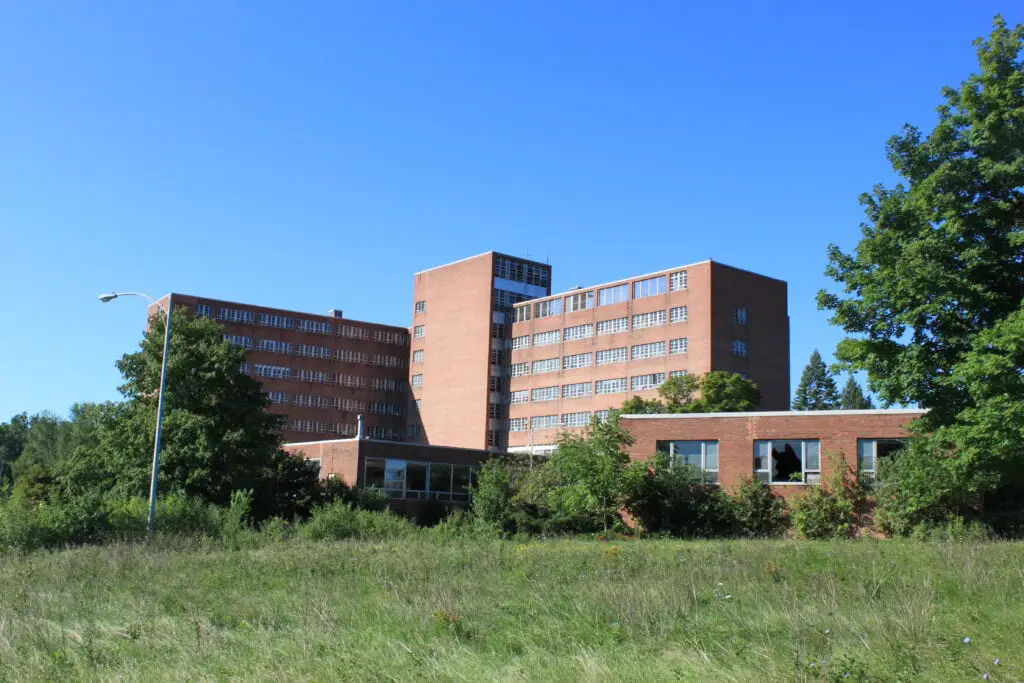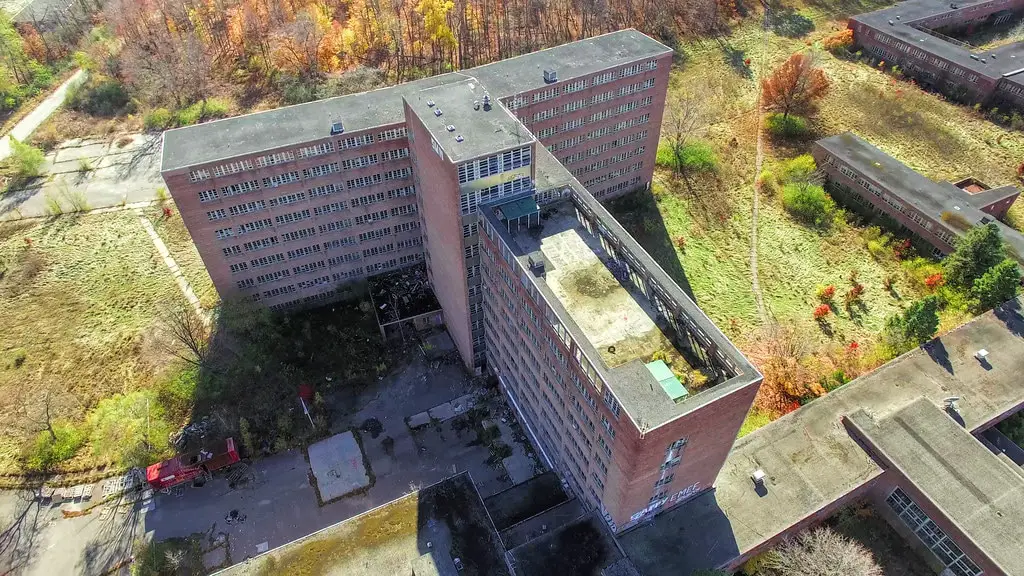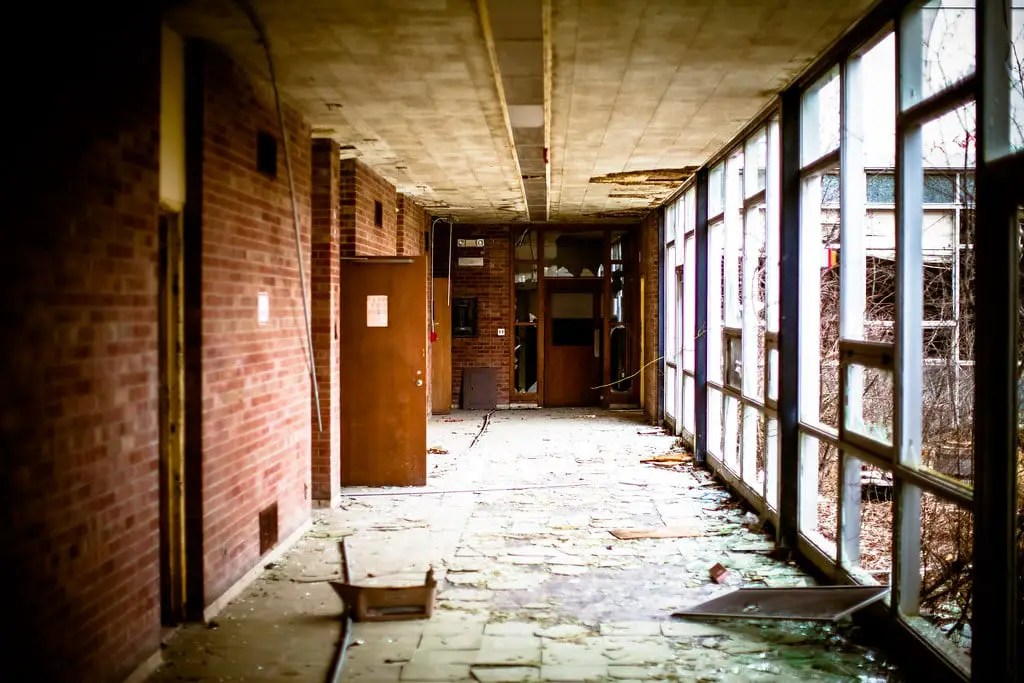A Majestic Beginning
Picture this: an expansive 520-acre land, a state-of-the-art medical facility standing tall, and a promise of hope for those suffering from mental illnesses. This was Northville Psychiatric Hospital when it first opened its doors in January 1952.
Designed to revolutionize mental health treatment, it was hailed as the most modern mental hospital globally and Michigan's first attempt at a scientific treatment of mental illness.
Not your typical sterile, cold, and intimidating hospital, Northville was built to provide patients with a soothing and pleasant atmosphere. The walls weren't the standard hospital white but painted in different shades to create a calming environment.
Soft music echoed through the corridors; many wards were kept open instead of locked. In its early days, the hospital pioneered the use of art and music as part of treatment.
A City Within a City
Northville Psychiatric Hospital was so much more than a hospital. It was a self-sustaining microcosm, almost like its own town. The complex had its own water tower, road system, train tracks, steam powerhouse, and underground utility tunnels. These tunnels connected almost every building through the basements, with steam pipes running from the powerhouse to the facilities.
During the Cold War, the basements and tunnels were designated as fallout shelters, equipped with enough food and water to sustain 17,000 people. The hospital complex comprised various buildings, each serving a unique purpose.
The iconic main building, the A Building, was an 8-story structure housing patient wards, offices, a pharmacy, operating rooms, a morgue, a cafeteria, and an 80-seat auditorium. One of its unique features was a roof patio for patients on the 8th floor.

Decline and Desolation
Sadly, the glory of Northville Psychiatric Hospital started fading in the 1970s when the state began cutting mental health budgets.
Initially designed for 650 beds, the hospital regularly treated over 1,000 patients, leading to overcrowding and deteriorating conditions. Budget and staff cuts took a toll, and in 1980 the hospital lost its accreditation.
Reports began to surface about appalling conditions, with assault, theft, and neglect becoming common.
The hospital also faced the problem of frequent escapes, with some patients being hit by cars while crossing Seven Mile Road or even dying in the woods around the hospital property. Consequently, these woods earned the eerie nickname of "Evil Woods." To counter this, a fence was later installed along the border of the hospital's property.

Closure and Aftermath
As the patient population dwindled, many buildings fell into disuse. A couple of arson fires in the 1980s and 1990s damaged some of these buildings beyond repair, leading to their demolition.
By the late 1990s, Northville Psychiatric Hospital, once admired as the "Palace of Glass" for its modern construction, was rundown and deteriorating.
In 2002, the state announced its plans to close the hospital, and by May 2003, the last patients left. The closure led to widespread condemnation, with many patients being transferred to nearby facilities, some across the state, and others ending up on the streets. After the closure, the hospital property was entirely abandoned by the mid-2000s.

Today and Beyond
Since its closure, the former hospital property has slowly been repurposed. In 2006, REIS bought the property and started logging the 200-year-old trees from the northeast side.
In 2012, Northville Township announced an $82 million plan to convert three-fourths of the hospital's property into a large nature preserve and park, with the remaining one-fourth to be developed into a commercial development called Northville Park Place. By 2014, the University of Michigan had built a 100,000-square-foot outpatient care facility in Northville Park Place.
Despite these developments, the past refuses to fade away. Many of the hospital's buildings, including the underground tunnels, attracted explorers, vandals, and scrapers. Though most tunnels are now unusable due to collapse or flooding, some people believe the hospital to be haunted by the spirits of patients.
The Adamo Group, a Detroit demolition company, initiated a process originally projected to span four months. This process kicked off in April 2018 and was completed in early 2019.
While the once magnificent Northville Psychiatric Hospital is no more, it remains a fascinating relic of history, a testament to the evolution of mental health treatment, and a symbol of the mysteries and stories that can be hidden within abandoned buildings.
